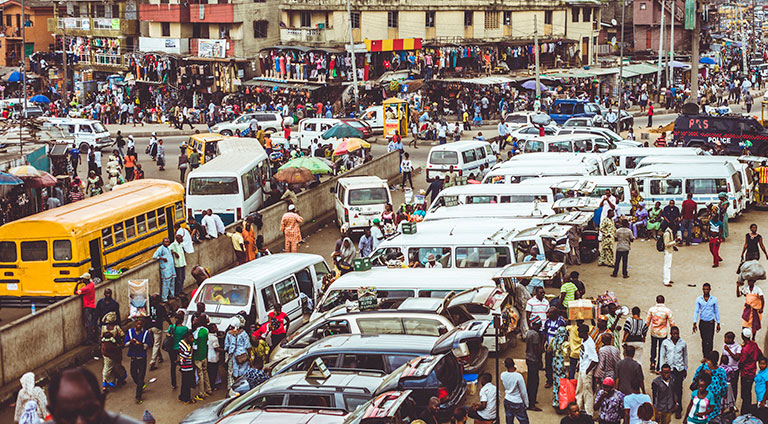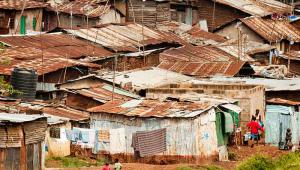768x424-Downtown-lagos-nigeria-iStock_000048812356_Full.jpg

Nigeria, the biggest economy in Africa, falls behind 26 other, poorer nations when it comes to the prosperity of its citizens
In its annual Africa Prosperity Report, the institute ranks nations’ success on how well their economic growth has translated into opportunity, good governance and quality of services like education and health, security, and freedom for citizens.
This year’s index found that some of Africa’s biggest economies – including Nigeria, Egypt and Angola – are some of the poorest in these terms.
In the report’s foreword, Alexandra Mousavizadeh, director of the Prosperity Index at the Legatum Institute, explained that across the continent there is “vast variation” in how well countries have done in transforming their wealth into prosperity for their citizens.
Some of the continent’s richest countries have the most substantial “prosperity deficits”. Angola for example, the sixth largest economy on the continent, has a prosperity gap second only to that of the Central African Republic, the poorest country on the continent which has one of the lowest overall levels of prosperity in the world.
Rwanda on the other hand, a much poorer country, has “delivered a lot with very little,” Mousavizadeh explained.
She continued: “The report finds the characteristics of delivering high levels of prosperity with your given wealth transcend wealth itself – a powerful message for policymakers trying to write a new narrative of Africa Rising in a slow-growth climate.
“Indeed, these characteristics – economic complexity, good governance, and simple freedoms – are structural and don’t require high growth rates to fix.”
The report found that even during periods of high growth, narrow, commodity-heavy economies have failed to deliver prosperity despite their growing wealth. This was the case across Africa and also historically around the world.
Nigeria, Africa’s biggest economy, and other big economies such as Angola and Sudan, ranked comparatively poorly in the index, coming in at 26, 33, and 34 out of 38 respectively.
The report’s message might prove particularly salient for these big commodity exporters as a crash in prices takes a heavy toll on their growth.
It notes: “In a new era of structurally lower commodity prices, a more hopeful narrative, one of growing prosperity, will be harder to write.”
Rwanda however has already achieved a significant “prosperity surplus” and is the highest achieving nation on the index, rising 10 places since 2009, thanks to its economic complexity, good governance and freedoms.
While it comparatively has much less in terms of GDP today, it is currently one of the fastest growing economies on the continent.
Senegal and Burkina Faso too have delivered more with fewer resources by driving improvements in personal freedoms and governance.
South Africa took the number one spot in the index, with countries including Botswana, Namibia and Ghana also sitting in the top 10.
They were joined by Morocco, Algeria and Tunisia, however north Africa as a whole saw declines in prosperity due to rising security challenges and deteriorating governance.
The least improved country is Tanzania, which has fallen five ranks since 2009 to 19th place. Those sitting at the bottom of the index include, with the exception of Angola, some of Africa’s poorest nations (CAR), those mired in conflict or political violence (Democratic Republic of Congo, Burundi) or recovering from the Ebola epidemic (Liberia, Guinea).
Overall the report is hopeful, with most of sub-Saharan Africa showing improvements. Nevertheless, the continent is far outpaced by gains made in the rest of the world, in Asia in particular.
As the region moves towards slower growth, Mousavizadeh urged policymakers across Africa to take on the report’s findings and “reflect on the state of fundamental cornerstones of prosperity at home”.
“We hope that this report shows that slower growth need not spell the end of rising prosperity in Africa, but rather demonstrates practical ways in which governments can deliver greater prosperity with the wealth they have.”













